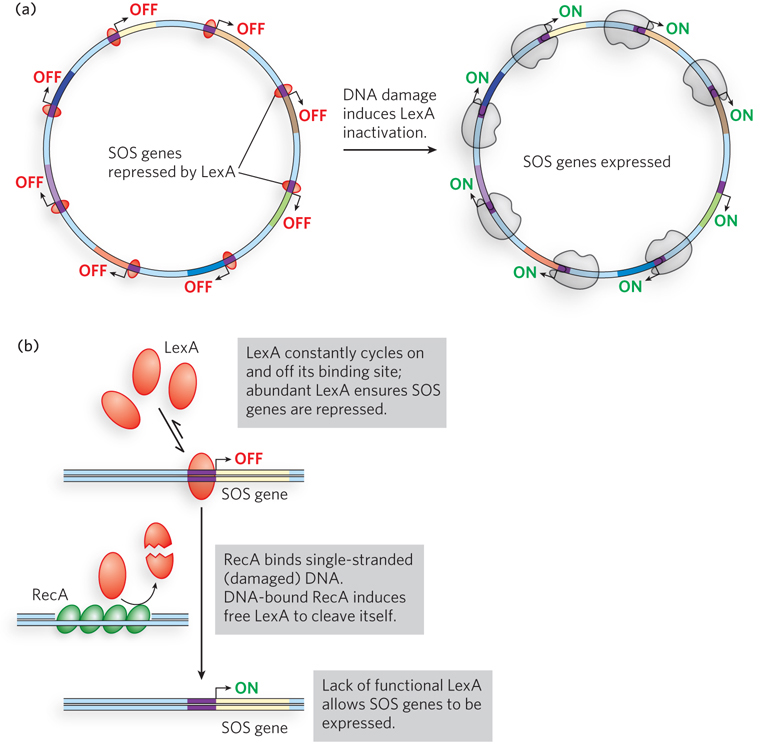
The global SOS response to DNA damage. (a) In the default state of the E. coli cell, the LexA repressor prevents transcription of the SOS genes. In response to DNA damage, LexA is stimulated to undergo autocleavage, inactivating itself and allowing transcription of the SOS genes. (b) Autocleavage of the LexA repressor requires RecA protein. DNA damage creates sites of single- A-